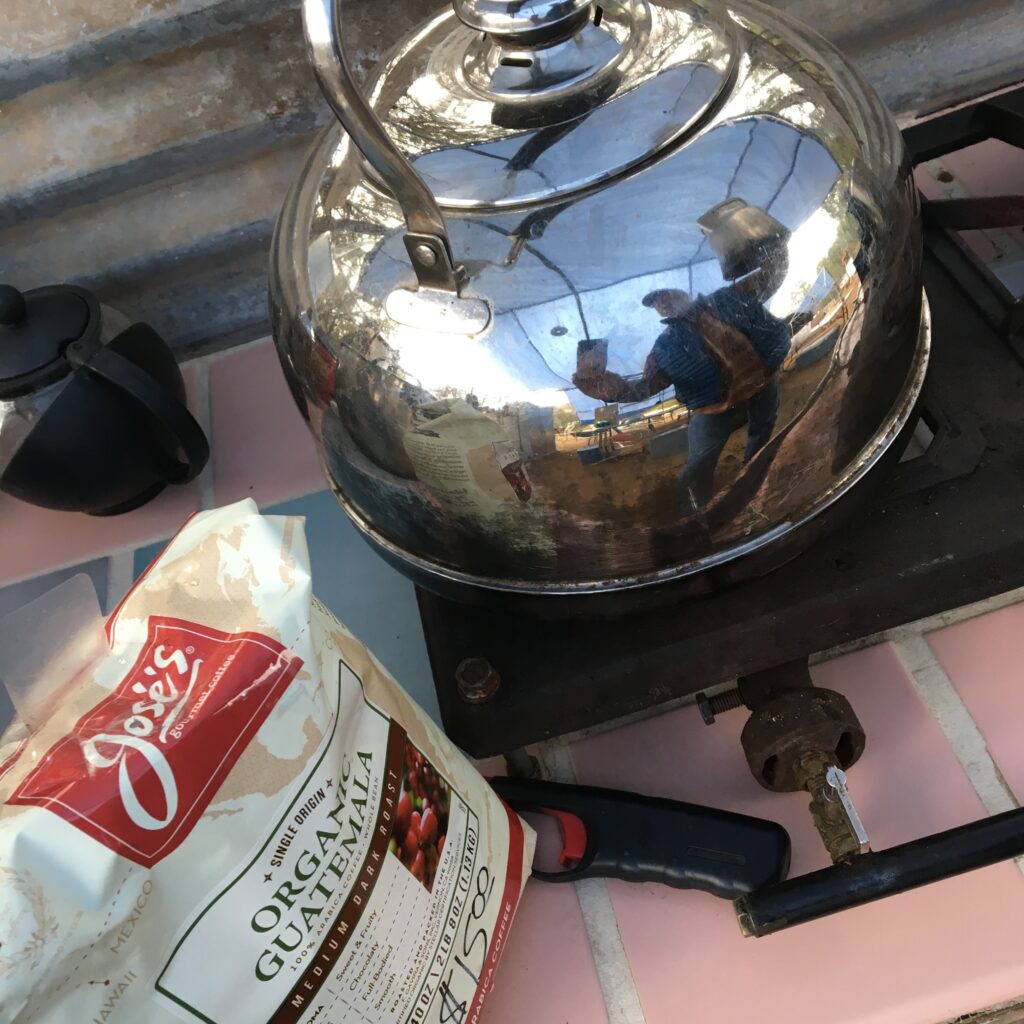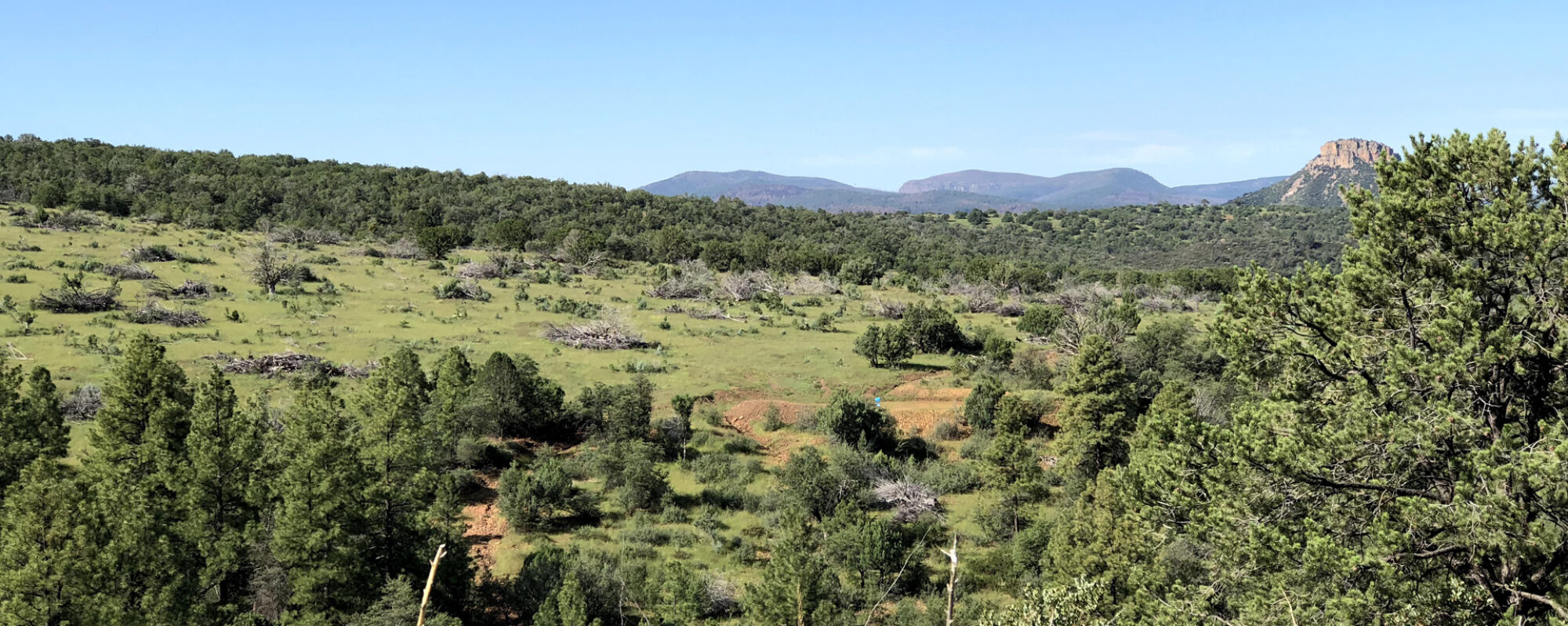
Last Amended 2/29/2024
Generally, the purpose of SAWUURA is to provide a religious, educational, and spiritual center for members and friends of the Unitarian Universalist congregations.
— Sawuura Mission Statement
Purpose of this policy: To achieve an atmosphere of respect, tolerance and safety for all visitors of the SAWUURA property. To allow for a variety of activities and uses of the property while protecting the basic character of the land as a religious wilderness retreat. To enhance each person’s enjoyment of, and relationship with the land.
Property Location: The SAWUURA property is located at the end of Forest Road 238 approximately 7 miles south of Young Arizona.
Facilities: SAWUURA is a primitive retreat with its own water, but no electricity or telephone. Water is available from a well and is gravity-fed to faucets along the course of the main road, at three of the four cabins, near campsites and at the kitchen area. There are solar-heated showers and pit toilets. There is a central bulletin board on the main road near the kitchen, with maps of the area and current news. The open air kitchen consists of a propane stove, two double sinks and counter tops. There are picnic tables in two covered ramadas and one fire pit.
Who may visit the property
Members/Guests/Registrants: The SAWUURA property may be used by SAWUURA members and their guests and registrants for SAWUURA sponsored events. Members may camp on the property by notifying a board member prior to the trip and completing and mailing (or delivering) a signed liability waiver to the SAWUURA secretary. Each stay is limited to a maximum of 14 days per individual. Non-members may use the facility only if accompanied by a member. A Board member must notify one other Board member of their intention to visit the property beforehand when practical, or within one week after leaving the property. SAWUURA is private property and trespassing is prohibited.
Cattle Ranchers: Owners or handlers of cattle that stray into the property are allowed on the property for the purpose of expediently removing the cattle. A designated SAWUURA contact person must be notified prior to entering the property, when practical. The contact person’s phone number will be made available to cattle owners in the vicinity.
Pets: Dogs & other pets are not permitted during group camps but are welcome at other times. A board member or the camp caretaker can give permission and guidance regarding bringing pets at other times.
ENTERING AND LEAVING THE PROPERTY
For SAWUURA sponsored events, all visitors are to check in with the “host” on arrival. An orientation should be conducted by the event host. The orientation should include an overview of the items from this document (to serve as a master document), check-out procedures, and any other timely information. The main gate to the property is protected by a padlock. If you plan to visit on your own, contact a board member for the lock combination and other info. The gate can remain open during visits—the cattle guard will keep cattle out. The last individual/party to leave must close and verify that the gate is securely locked.
Liability Waivers
Adults: A signed liability waiver is required for each event/visit to the SAWUURA property, listing all attending adults and children. Liability waivers can be obtained from the forms area at http://www.sawuura.org. Waivers must be emailed to the Board Secretary before visiting the property or be placed in the kiosk at SAWUURA. Drop in visits are encouraged. Contact a board member for lock combination and other information.
Children: Adults must list (by name and age) anyone under 18 years of age attending with them. A child visiting SAWUURA without a parent or legal guardian must also have a Liability Waiver signed by the parent or legal guardian, in addition to being listed on the waiver of the adult(s) who are attending SAWUURA with him/her.
Care of the facility
Vehicles/trailers: Vehicles should be backed and close to the main road. Travel at 15mph or less. Avoid the PVC waterline that follows the road.
Tent camping is encouraged at SAWUURA, however the use of small camping trailers is possible. The road into SAWUURA is narrow and rough in places and can become muddy after periods of rain with very limited opportunities for reversing until well inside the SAWUURA property. Therefore, it is not recommended that you attempt to bring any trailer into the site that is over 16 feet in length.
Water: The water supply from the well is limited and is sanitized during group camps. Conservation of water is very important. Visitors should always bring emergency drinking water.
Natural resources: Potential impact to the natural resources, habitat and wildlife of SAWUURA should be taken into consideration in all choices of land use and human activities. Human use of the property should be concentrated in established campsites and common areas.
Toilets: There are composting toilets; East of the Creekside Cabin & east of the winter cabin. Use instructions are posted. There are containers of ashes at the pit toilets –sprinkle a little after each defecation. Never put trash in the toilets.
Trash: Dispose of trash in designated receptacles – never in the toilets. Separate paper trash and recycling. Bagged trash is taken out of SAWUURA at the end of each visit.
Kitchen and Cabins: See “Fire Safety” and “Dangers from Animals”. Please leave all facilities as you find them, and follow the check-out procedures in the Orientation.
Artifacts: The area around SAWUURA has been inhabited by people for thousands of years. To show our respect for native people, artifacts should be enjoyed in place and not moved.
Trees and other Plants
Gathering firewood: Only dead limbs can be removed from trees for campfires. Use caution in cutting limbs. Brush may be collected. (See also “Camp fires”).
Live plants: To allow for natural regeneration of the plants at SAWUURA, do not pick flowers or collect seeds. As part of an ongoing Ladder Fuel Reduction program, live trees and underbrush may be removed under the supervision of the board or camp host only.
Safety
Hiking off of the property: The entire property is fenced with barbed wire, and it is important not to stray outside alone. If you decide to hike outside the property, or leave the property for a day trip, tell the camp host where you are going and when you expect to return.
Hunting, weapons, illegal drugs: Hunting, weapons and illegal drugs are not permitted on the property.
Animals: There are many wild animals to observe at SAWUURA. While it is tempting to “get close” to wild animals, any contact with humans may alter their behavior. Please follow this rule of thumb: If you are changing the animals behavior, you are too close. All of the animals you’d expect in the forest are residents here, so be watchful and respectful when hiking and climbing. It is very important to keep all food and scented items such as toothpaste and candy out of tents. Check your and your children’s pockets for food wrappers. Food must be stored in vehicles, the kitchen area or in the cabins to discourage foraging by mice and large animals.
Bell Ringing: The ringing of the brass bells indicates optional gatherings, such as the start of a program or mealtime. Anyone at the Winter Cabin hearing the main bell, should ring the bell there to relay the message down canyon.
Medical emergency: For the unexpected emergency, medical services may be available from the clinic in Young. A cellphone signal can usually be made on the Sunset Point trail, just above the Winter cabin or on the Stone Cabin trail, just northeast of the group area . Limited first aid supplies are availabe in both cabins.
Emergencies: Three short blasts repeated from a car horn will be used to gather people in case of emergency. This is not optional, as everyone will have to be accounted for.
Fire Safety
Cook stoves: are permitted in camp sites in an area that is clear from overhanging material. Stoves should be placed on concrete pads near the campsites (when available) or a secure, non-flammable surface, off of the ground, with a fire extinguisher nearby. Be sure a tile or similar is used on top of the plastic picnic tables.
Lanterns: To reduce the risk of forest fires, battery powered lanterns are encouraged. If using a gas powered lantern, do not hang it near the trunk of a tree or under any foliage.
Candles: are permitted on tables in the kitchen area. If a worship service will include lighting candles, the service should be held at the main fire pit.
Fires: Fire is allowed in the wood stoves in the Winter Cabin or Creekside Cabin. Built in stoves in motorhomes, campers or tent trailers that are parked in cleared areas are permitted. The kitchen stove should be turned off at the main valve of the propane tank when not in use.
Camp fires: Camp fires are only permitted in the fire pit near the kitchen. Fires or stoves should never be left unattended. Camp fires should be put DEAD OUT with water (not dirt alone) by the last person at the fire. A full 5-gallon water bucket and shovel need to be within 25 ft. of a burning fire at all times. (See “Gathering firewood”). We will honor Forest Service fire restrictions when they occur.
Smoking: Smoking is permitted in vehicles ONLY. Please crush all cigarette butts and dispose of them in a trash receptacle or ashtray.
Conflict Resolution
In cases where conflict arises at a SAWUURA Sponsored event, the designated HOST and any present board members should collectively decide on a course of action to resolve the conflict. Members or guests who refuse to abide by the rules of this policy may be denied access to the property. The camp host is authorized to ask the person(s) who will not comply to the rules to leave the property.

